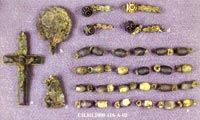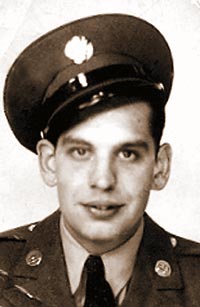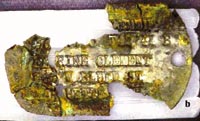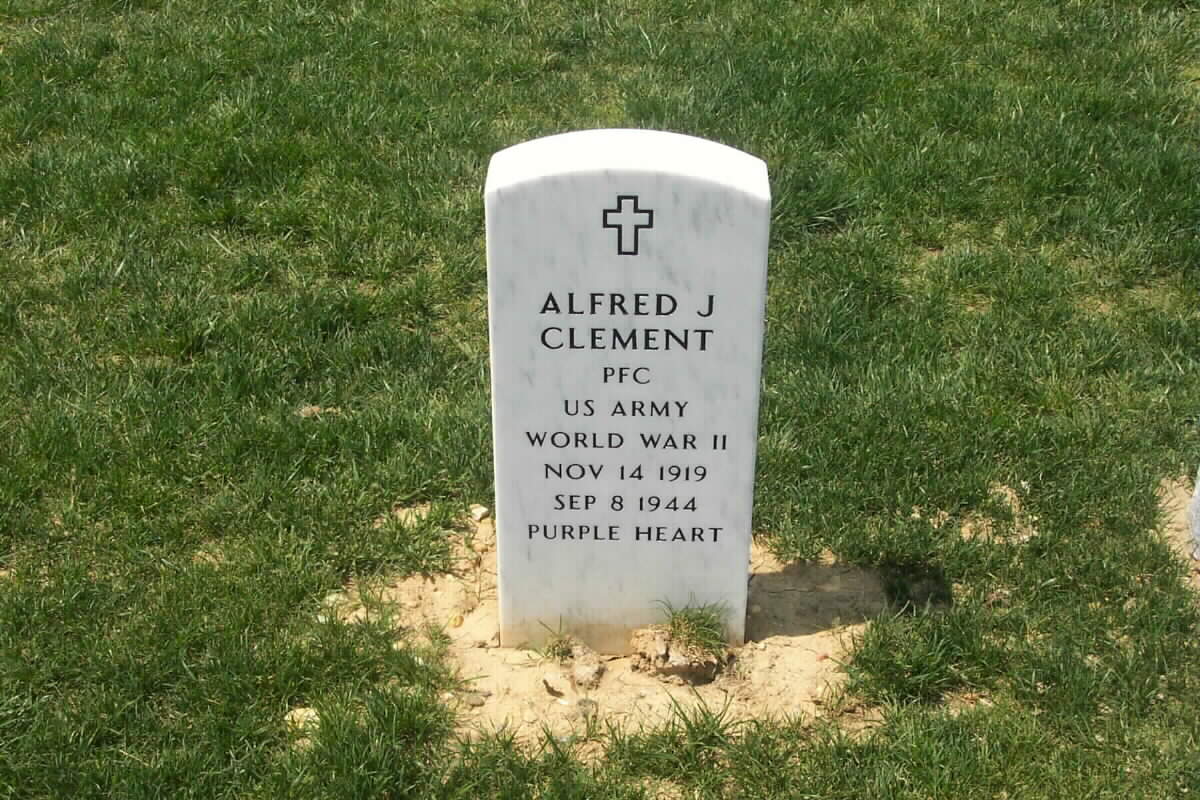Alfred J. Clement
Private First Class, U.S. Army
36227750
11th Infantry Regiment, 5th Infantry Division
Entered the Service from: Michigan
Died: September 8, 1944
Missing in Action or Buried at Sea
Tablets of the Missing at Lorraine American Cemetery
St. Avold, France
Awards: Bronze Star with Oak Leaf Cluster, Purple Heart
Sunday, October 12, 2003
Marquette G.I.’s body found in France
A long, lonely road home
Private First Class Alfred J. Clement, United States Army, is finally coming home to America.
Alfred cut a dashing figure in his military dress greens as he prepared to depart the family’s West Bluff Street home in Marquette on November 5, 1941.
Among the first young men from Marquette County drafted into the armed forces as the U.S. was inexorably pulled into World War II, Alfred was shipping out to continue training as an Army infantryman.
After almost 60 years since his combat death in France, Alfred’s body was recently discovered.
When Alfred left town in 1941, his mother Florine, then recuperating from cancer and greatly weakened by the disease, had risen from her sick bed the night before to put a flat iron to his olive-drab trousers.
His sister Mary Pauline, then 17 and a junior at Graveraet High School in Marquette, recalls the crease on the uniform trousers“was sharp enough to cut your finger on.”
Born November 14, 1919, Alfred attended Graveraet High School and was a member of St. John the Baptist Catholic Church. A devout Roman Catholic, he is recalled as a light-hearted lad with an easy smile who was given to the odd practical joke.
Sister-in-law Bernice Clement of Marquette, who wed Alfred’s brother Adlord in 1942, remembers an occasion that illustrates the devil-may-care side of Alfred’s personality.
“We were sitting on the couch downstairs, waiting for his brother to come down,” she said. “As soon as (his brother) came down, he grabbed me in this mad embrace.
“His brother just rolled his eyes,” she said. “He knew him all too well.”
Childhood friend Mildred “Mickey” Marietta said, “(Alfred) was just a nice guy, real easy going about everything.”
The arrival of Alfred’s conscription notice was hardly unexpected; as manager of the Raish Filling Station on West Washington Street, he had confided to family and friends that it likely was only a matter of time before Uncle Sam came calling.
And why not? Tens of thousands of young men were entering the armed services all across the country.
In Marquette, several of Alfred’s friends had already shipped out via “the 400,” the Duluth, South Shore & Atlantic Railroad passenger train that departed Marquette’s downtown depot.
Mary Pauline, now Mary Pauline Ayotte, remembers that early morning in Marquette, almost one month to the day before the Japanese attacked Pearl Harbor. It was sunny and bright.
But like the gray storm clouds that hung on the city’s western border, there was a sense of dread that ran through the Clement family, which included eight children total.
Florine Clement was unable to see her son to the front door. Overcome with sorrow, her muffled sobs could be heard from the top of the stairs, Mary Pauline recalls.
Her father Harry Clement, a leather-handed boilermaker with the DSS&A, stood wide-eyed in the hallway leading outside.
His rosary in one hand and a sheaf of military documents in the other, Alfred swallowed emotion and turned to say goodbye.
“We all knew what was happening. So did he. I knew he was leaving but I thought he was coming back,” said Mary Pauline, now 77 and living in Ishpeming. “I remember hugging him and telling him to be careful. He gave me an extra hug and whispered that he would.”
Alfred J. Clement, known by friends alternately as “Jo Jo” and “Ditto,” never returned to Marquette. On September 8, 1944, he was killed in combat against the German Army near the River Moselle in France.
His body was not recovered.
“I remember when the telegram from Western Union arrived in October of that year. I remember that day like it was yesterday,” said younger brother Marvin Clement, 72, of Lake City, Florida. “The first (telegram) said he was missing in action. The second (received by the family about one month later) said he was killed in action.”
Florine Clement was so devastated by the news that she never fully recovered, Marvin said. She died of apparent heart failure a few months after receiving the final telegram.
“I believe my brother’s death killed her,” he said. “She just never was able to come back after that.”
Harry Clement did not talk about his lost son.
“My dad was a man of few words,” Marvin said. “You could see he was thinking about it. But he never talked about it.”
The Clement family might have achieved some measure of closure if Alfred’s body had been recovered, Marvin said.
Even if they had had knowledge that he was interred in one of any number of American military cemeteries in France, that would have helped, he said.
Almost six decades after the end of World War II, more than 78,000 American servicemen and women remain officially listed as missing in action.
But with no body, and no grave to visit, the loss of Alfred remained a painful, open wound.
In September 2000, an amateur French archaeology group named “Thanks GIs” was searching the approaches to the River Moselle.
The group is credited with finding a number of sets of American military remains over the years.
In a marshy area, still undeveloped and very much as it was on September 8, 1944, the group found Alfred. He was identified using dental charts, his dog (identification) tags and the rosary he had with him when he left Marquette in November 1941.
The family was notified earlier this year, after the Army fully verified identification of the remains.
“I was so surprised when I got the call from the Army that he had been found,” Marvin said. “They found a lot of the things he had with him.”
Added Mary Pauline, “He is finally coming home. After all these years, he is finally coming home.”
Family members will view Alfred’s casket next Tuesday night at the Old Post Chapel at Fort Myer, Virginia.
Burial with full military honors will take place Wednesday morning in Arlington National Cemetery.
The rosary above was found with the
remains of Pfc. Alfred Clement. His sister recalled him holding it
when he left home for the last time in 1941.
Private First Class Alfred Clement, 1941
The dogtag above helped the French identify Pfc. Alfred Clement.
He will be buried Wednesday at Arlington National Cemetery.
(All photos courtesy of Clement family)
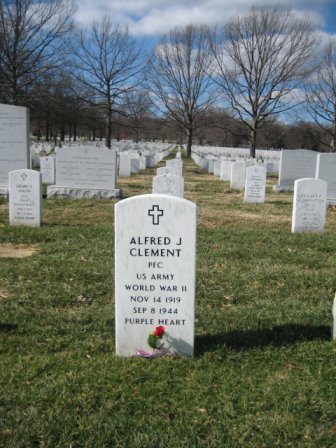
Michael Robert Patterson was born in Arlington and is the son of a former officer of the US Army. So it was no wonder that sooner or later his interests drew him to American history and especially to American military history. Many of his articles can be found on renowned portals like the New York Times, Washingtonpost or Wikipedia.
Reviewed by: Michael Howard

